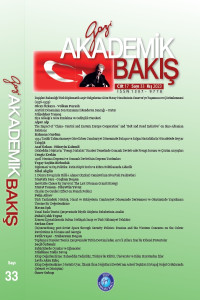The Impact of “China-Central and Eastern Europe Cooperation” and “Belt and Road Initiative” on Sino-Albanian Relations
The Impact of “China-Central and Eastern Europe Cooperation” and “Belt and Road Initiative” on Sino-Albanian Relations
Author(s): Rahman NURDUNSubject(s): Diplomatic history, Economic history, Political history, Post-War period (1950 - 1989), History of Communism, Post-Communist Transformation
Published by: Gazi Akademik Bakış
Keywords: China; Albania; the BRI; Enver Hoxha
Summary/Abstract: The end of WW II in 1945 did not usher in a new era of lasting peaceful environment but brought in confrontations between two opposite camps based on two different ideologies and value systems: One was US-led Western industrialized countries in favor of democratic systems; another was Soviet Union dominated Eastern Bloc countries upholding socialism. China and Albania belong to the latter camp, but split with the Soviet Union after the death of Joseph Stalin due to Nikita Khrushchev’s de-Stalinization stance. Subsequently, China and Albania forged an alliance against Soviet Union in 1950s until Albania fell out with China in 1978. Sino-Albanian Rapprochement was achieved in 1980s after the death of Enver Hoxha. Bilateral relations remained stable since and entered into a new phase symbolized by Chinese business engagement with the launch of China-Central and Eastern Europe Cooperation (China-CEEC) and “Belt and Road Initiative” (BRI). The aim of this study is to evaluate the impact of the Chinese new initiative to Sino-Albanian relations.
Journal: Gazi Akademik Bakış
- Issue Year: 17/2023
- Issue No: 33
- Page Range: 61-73
- Page Count: 13
- Language: English

